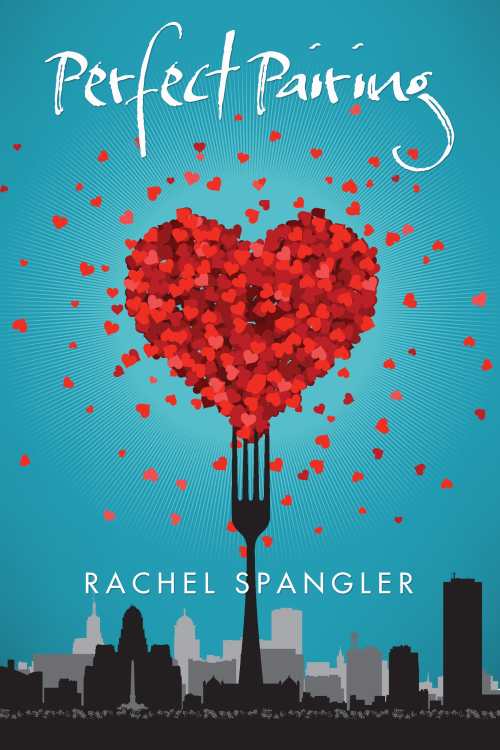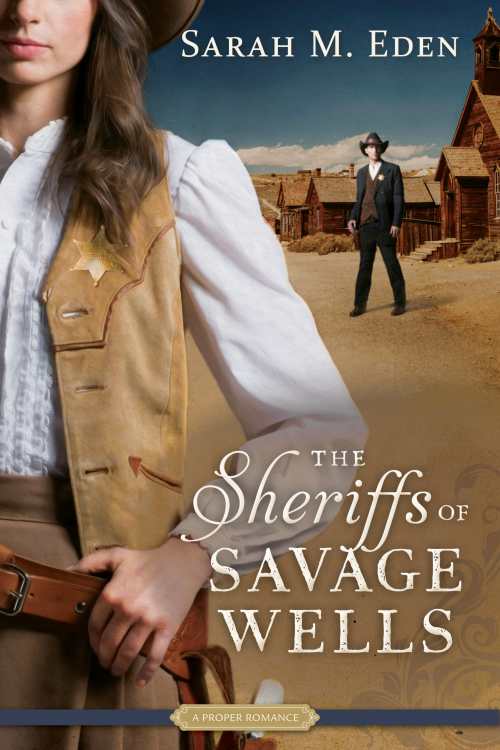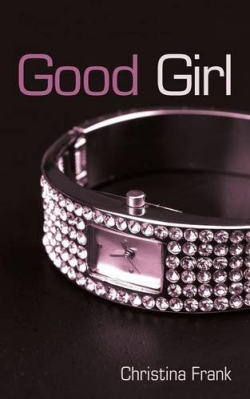Why Must Romances End With a Wedding?

Wedding season is finally drawing to a close. The last bouquet has been tossed, the final bite of frosting smeared across a plate. For romances, this season represents closure: the satisfying conclusion of a long, lusty courtship between two characters who are clearly meant to be together. In a romance, the first kiss is just as important as the last dance. So why do romances usually end with a wedding?
The classic marriage plot shows up in every subgenre of romance—even erotic romances, which finish with what author Susanna Carr calls a “Happy For Now” ending. This plot shows up in everything from Bridget Jones to Fifty Shades of Grey. Closure, of the tangible kind, is key.

In Perfect Pairing, a sweetly tart LGBTQ romance, marriage may not be on the table yet, but commitment is. Instead of a ring, chef Hal proffers something tastier. “I’ve heard of people proposing in song and proclaiming their love through poetry, but you may be the first person in history to illustrate that message with a sandwich,” jokes her girlfriend Quinn. The proposal neatly ties up the couple’s story, touching on the elements of personality and style that make the relationship unique.
Romance, after all, is about finding and falling for your true love. What transpires between first meeting Mister (or Miss) Perfect and finally walking down the aisle are dependent on the subgenre, but those two pillars of plot hold up many romances. And considering that romance has the single largest share of the fiction market, it’s clear that the marriage plot is appealing to readers.
Although marriage is a less popular choice for singles than it was a few decades ago, 88 percent of single men and women believe that their soul mate is out there, and they won’t settle for less. The quest for love is as powerful as ever, and romance novels reflect our culture’s intense desire to find our perfect match. And that means proposals, weddings, and the hope of a future together. Eighty-eight percent is a lot of hopeful people.
Well, I hate to bust the bubble, but romance as a genre is not meant to be realistic. Not 100 percent realistic, anyway. (For the record, neither are science fiction, mystery, or adventure novels.) Romance is all about the psychology of love, from a female perspective. In their excellent book A Billion Wicked Thoughts: What the World’s Largest Experiment Reveals About Human Desire, authors Ogi Ogas and Sai Gaddam point out that “when it comes to women’s preferences, they don’t just want a nice guy—they want an alpha who learns to be nice to her. In other words, women want their romance heroes to be like coconuts: hard and tough on the outside, but soft and sweet on the inside.” And, of course, only the heroine gets to crack him open.
Jane Austen’s Pride and Prejudice is a perfect example of the marriage plot. The hero and heroine meet, and although attracted to one another, there’s enough mutual dislike to keep them apart—not to mention a few barriers of class, family, and wealth. It’s telling that Mr. Darcy’s first marriage proposal is met with total disdain. He’s roundly rejected, and Elizabeth, losing her temper, inquires “why, with so evident a design of offending and insulting me, you chose to tell me that you liked me against your will, against your reason, and even against your character?” She inventories Darcy’s failings and criticizes him so energetically that he leaves the house.
Later, when the couple’s mutual conflicts have been put to rest—sisters married off, unsuitable suitors dismissed, mothers subdued—the pair reunite. On a walk through the grounds at Longbourn, Mr. Darcy is able to apologize for his bad behavior. “What do I not owe you!” he says. “By you, I was properly humbled.” Within two chapters, they are married. It’s not a reversal, exactly, but when Mr. Darcy gives credit to Elizabeth for the way he’s changed, his character opens up to her. She alone sees below his cold exterior; he has given her a gift that no one else will ever have. He becomes valuable to her because his adoration and love are, finally, obvious. That realization changes her, too; suddenly, they’ve become partners, with a chance at a future together.

It’s not all balls and bonnets, either. Contemporary Western romance The Sheriffs of Savage Wells, is a great example of this plot. Rough prairie beauty Paisley Bell’s epic standoff with traveling lawman Cade O’Brien includes feats of strength, marksmanship, and mediation—a battle of the sexes that reveals how great the two characters are when they work together as a team. Finally, Cade realizes that “seeing her never ceased to bring him a feeling of having come home.” He offers Paisley his mother’s Claddagh ring on a gold chain, a symbol of love, friendship, and loyalty. “He’d found home, and he’d found her, and he didn’t mean to ever let either one go.” Paisley has cracked her coconut.

The blooming love between the characters is at the core of romance, and that’s satisfying, even if it is the “same old story.” Romances include every psychological cue that women use to assess and select partners in real life: loyalty, bravery, kindness, resourcefulness, sexiness, and prestige. Noah Bentley, the billionaire boyfriend in Christina Frank’s wonderfully sexy romance Good Girl finally takes a knee after he’s shown his softer side to his sweetheart. On his birthday, he asks Gabriella for more than just a short-term commitment.
“I know something you can give me,” he says. He takes a tiny black box from the pocket of his sweats. More than just a piece of jewelry, he wants a wedding—and soon. Like, in four days. At first Gabriella is confused, but then realizes the significance. “The eighteenth is exactly six months from the day I moved in with him. It is the day when I was supposed to decide whether I would stay or go. Suddenly, it all seems perfect.”
After all the struggle and negotiation, is a perfect ending too much to ask for?
Finding true love is one of the best, most enduring fantasies in human history. Romance novels keep the fire burning, reminding readers that magic is everywhere, and that love, like hope, springs eternal. I mean, why not? For all you know, your soul mate is right around the corner.
Also by Claire Rudy Foster: Men, Try This On For a Romantic Thought: Romance Novels Are Not All About You

Claire Rudy Foster lives in Portland, Oregon, where the rainy weather happily necessitates long days of reading indoors. An unabashed Janeite, she enjoys romance novels of all stripes. She’s the author of the short story collection I’ve Never Done This Before. You can follow her on Twitter @verasententia.
Claire Foster
